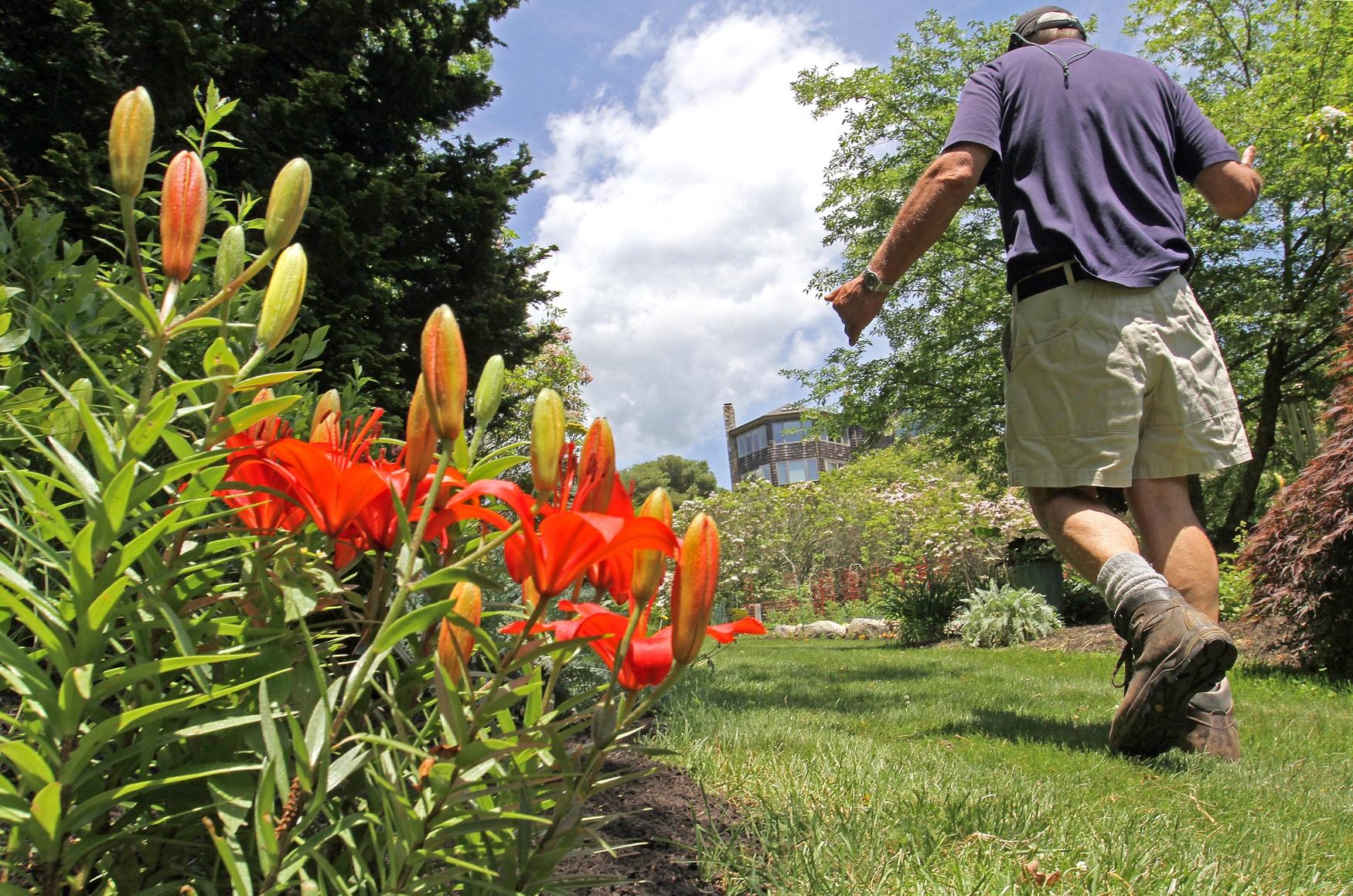Distinctive private gardens on display at URI’s Gardening with the Masters Tour
The tour of 26 gardens around the region is about “looking at the beauty and miracle of nature, with a chance to learn new techniques and to talk with other gardeners,” said Alice Cross, a URI master gardener.
Here in Southern New England, the start of summer denotes the midpoint of the growing season.
Irises and peonies are fading, while roses and daylilies are coming into bloom. In the vegetable garden, peas are popping, as peppers and tomatoes catch on.
This halfway point in the season also marks the return of the biennial Gardening with the Masters Tour, sponsored by the University of Rhode Island Master Gardener Program.
The tour, which takes place Saturday and Sunday, features 26 distinctive private gardens for visitors to enjoy, ask questions about and take notes on. The tour is also a chance to meet others with similar interests.
The tour is about “looking at the beauty and miracle of nature, with a chance to learn new techniques and to talk with other gardeners,” said Alice Cross, a URI master gardener. Cross is helping publicize the program. Her home garden in Barrington is also on the tour.
Each garden, from as far north as Cumberland to as far south as Stonington, Connecticut, belongs to a Master Gardener Program graduate, who also completed at least 20 hours of volunteer work in a school, community garden, historic site or other setting.
“All gardeners on the tour are schooled in sustainable practices; many highlight native shrubs, trees, and perennials,” said Cross. “Homeowners will be on site to share the history of their properties and to answer questions.”
One garden on the tour belongs to Fred and Sandra Saunders of East Greenwich. Their grounds are designed to attract birds, butterflies, bees and other pollinating insects.
“We use as many native flowers as we can, combined with ornamentals, in a flowering sequence that stretches through the growing season,” said Sandra Saunders.
Visitors to the garden will find hummingbird feeders paired with plants, such as salvia and rose of Sharon, which sustain birds naturally. Soon-to-bloom sunflowers, brightening the garden though summer, will provide seeds for small birds and mammals in autumn. Berries now forming on winterberry and holly will feed American robins, mockingbirds and other fruit eaters in winter.
Across the bay in downtown Newport, tour participants will discover a very different landscape at the home of Russell and Jean Frisbie. Located beyond a kitchen sliding door, their garden measures 15 feet by 50 feet.
“Ours is a small urban garden stuffed with plants that range in size and shape from ground covers to small trees,” said Jean Frisbie.
The Frisbies follow the protocols of “matrix gardening,” which means layering plants to mirror the balance, nurture and self-sustainability of natural plantings such as a dense field of wildflowers.
The couple work to make up for the loss of local habitats by using native species, such as blueberry, in their design. One native particularly thriving at the moment is northern sea oats, a perennial ornamental grass that features curious flat foliage and unusual seedheads, she said.
“Touring 26 gardens is as leisurely and pleasant a way to spend a weekend as I can imagine,” said Cross.
Tour tickets are $20, and are available at <a href=”http://web.uri.edu/mastergardener/tour/”>web.uri.edu/mastergardener/tour/</a>. Each registrant receives a booklet that details the gardens and serves as a two-day admission ticket. Gardens will open 10 a.m. to 4 p.m. each day.
